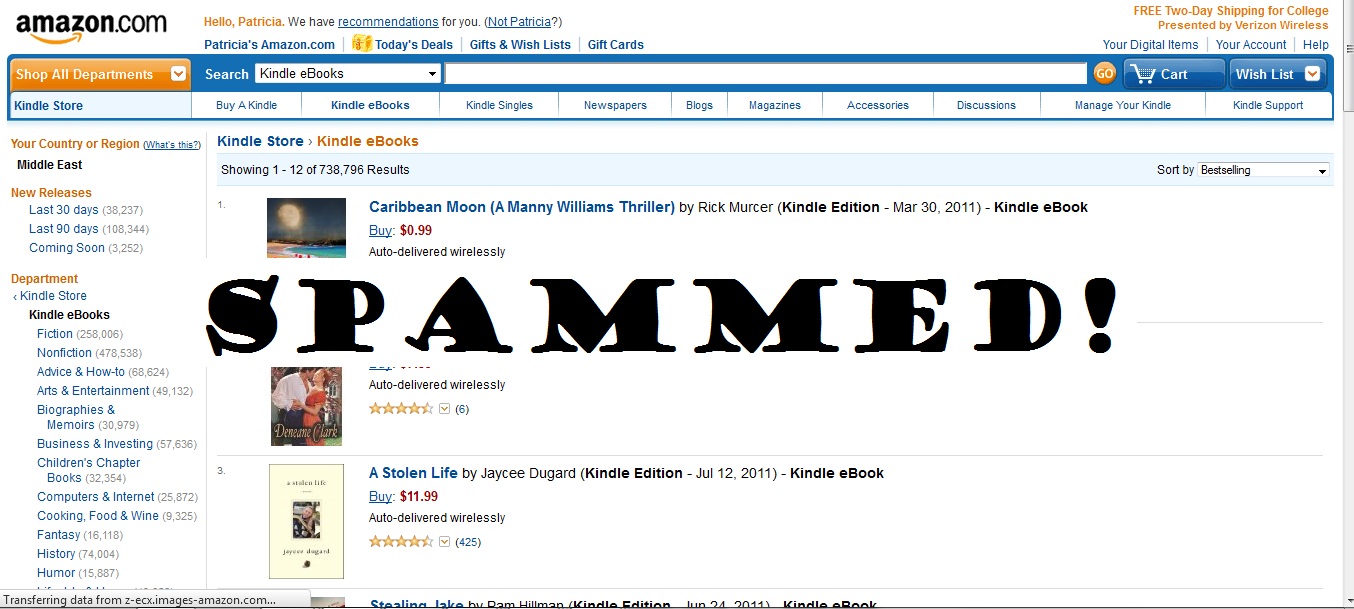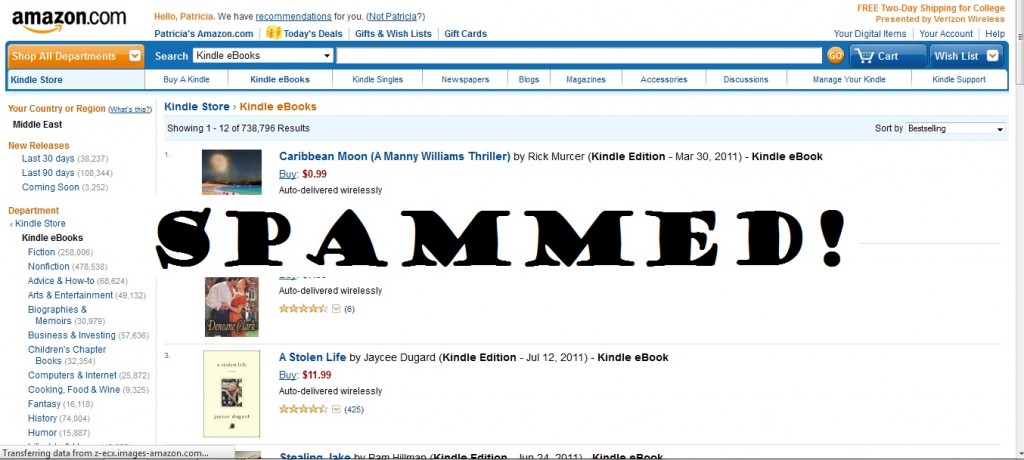
Avoiding Spam eBooks on Kindle
 Amazon enables writers to publish their book on Kindle Direct Publish for free, which is undoubtedly a generous idea. However, the other side of that shining coin is that spammers are abusing that system to earn a quick buck at the expense of the reader.
Amazon enables writers to publish their book on Kindle Direct Publish for free, which is undoubtedly a generous idea. However, the other side of that shining coin is that spammers are abusing that system to earn a quick buck at the expense of the reader.
Amazon is now selling more ebooks than paperbacks, yet there are no statistics as to how many of these sales are sales of spam books or stolen books.
The problems
a. Spam ebooks
What are spam ebooks? Most of them are built based on PLR content (Private Label Rights), information that can be bought very cheaply online then reformatted into a digital book.
There are even programs, such as Autopilot Kindle Cash, that enable spammers to create 10-20 ebooks and upload them on Kindle in a matter of minutes without writing a single word.
These spam ebooks are usually priced at $0.99, the content is appalling, some are even nothing more than a multipurpose reusable booklet containing links to its original source. These are built to go viral, as tempted aspiring spammers can reuse it as long as they keep the links alive, thus converting more aspiring spammers.
As these spam ebooks multiply, they clog down the list of available ebooks and considerably slow down the reader’s ability to find a valuable book while increasing the risk he will be scammed.
b. Stolen ebooks
Some scammers, a notch above spammers, purely and simply copy somebody else’s book the book and sell it. This has been the case for Ruth Ann Nordin, whose book has purely and simply been copied as such, including the cover and author’s name and put on sale on Amazon.
Interviewed by Reuters, Shayne Parkinson, a New Zealander historical writer whose debut book “Sentences of Marriage” had been stolen and republished under another name reports : “How did I feel? Shocked and somewhat incredulous”.
These two cases have been spotted by chance, Nordin noticed something amiss when checking her sales figure and Parkinson was warned by members of a British forum.
How many other stolen book are out there on sale is anyone’s guess.
The solutions
a. Publishing Fee
Daffron of Logical Expressions said Amazon should charge for uploads to the Kindle publishing system because that would remove a lot of the financial incentive for spammers. This however, is unlikely to be well received by the general public.
b. ISBN Number
Currently, Kindle Direct Publish does not require providing an ISBN number for the ebooks sold on its shelves. It affects automatically affects an ASIN number to every book, available for free.
Apple ibook store, where an ISBN number is required, suffers from much less spamming.
ISBN numbers have to be bought, eliminating the free ride for spammers, and the buyer has to be identified, increasing the risk for book thieves.
c. Paying Royalties quarterly rather than monthly
Though Smashwords also reports spamming problems, it is on a much smaller scale than on Amazon Kindle Direct Publish. It’s founder Mark Coker, attributes the lower level of spamming to two elements.
- Smashwords manually checks the formatting and other basic characteristics of the submissions it receives, before publishing. Obvious signs of spam include poorly designed covers, the lack of an author’s name on the cover and bad formatting.
- Smashwords pays authors quarterly, while Amazon pays monthly. The longer payment period means Smashwords has more time to track down spammers and close accounts before money changes hands.
As these spamming and theft problems concern all of us genuine writers, we should pool together to find an effective solution that only hurts the spammers and their ilk. So, let’s discuss it together below in the comment section.